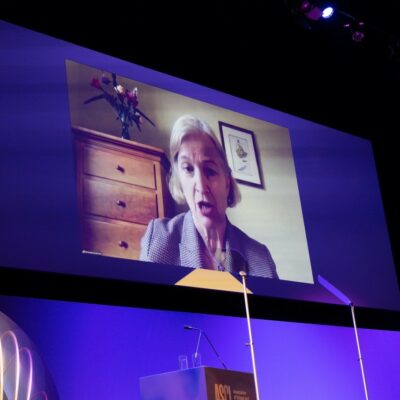Labour will “look at” how schools are graded by Ofsted as part of proposed reforms to the watchdog, amid concerns parents don’t always have a “clear sense” of what the current ratings mean.
Shadow education secretary Bridget Phillipson told headteachers today that it was “time for Ofsted to turn a corner”, as she spoke about Labour’s plans to make the inspectorate a “critical friend to every good leader and every good teacher”.
Labour leader Sir Keir Starmer announced last year that he would reform Ofsted to focus on struggling schools if his party wins the next election.
Kate Green, Phillipson’s predecessor, told Schools Week at the time that Labour wanted Ofsted to take on a strengthened school improvement role, with the length and timing of inspections also up for discussion.
Speaking at the annual conference of school leadership union ASCL today, Phillipson warned Ofsted “operates in a way that is often too high stakes, and where the risks of a ‘bad’ inspection outweigh the rewards of a good one”.
“A cat and mouse game between inspectors and schools, with no incentive to have an honest professional dialogue, to accept weakness and work to address it, are the unhelpful features of such an adversarial system.”
Asked by Schools Week about her plans following the speech, Phillipson said she wanted to “look at the way in which both gradings are considered but also what parents might learn from that report and from the data that’s published”.
Schools are currently graded on a scale of one to four, with one being ‘outstanding’ and four being ‘inadequate’.
Ofsted’s latest parent survey found that although 84 per cent of parents were aware of the grade of their child’s school, a lower proportion, 71 per cent, said the information in reports was reliable.
Just 44 per cent of parents described Ofsted reports as their main source of information when choosing a school.
“I don’t think that parents, looking at those grades, would necessarily always have a clear sense as to what they mean in reality,” Phillipson said.
She said inspections needed to give a “much more rounded sense of what schools are doing well, but also a greater focus on making sure that our children’s wellbeing and mental health is supported as well”.
Spielman: Remake education’s ‘social contract’
It comes after Amanda Spielman, the chief inspector of Ofsted, told the conference that “reducing anxiety and rebuilding confidence will be a theme for the rest of this school year”.

Appearing over video link after testing positive for Covid, Spielman said she feared the pandemic had “fractured the social contract around education”.
“For years that contract has been clear – parents have a responsibility to get their children to school, with minimum absences, and in return schools do their level best to educate and look after those children.
“Now’s the time to remake that contract.”
She warned of a “skewed perception” among some pupils that they are “better off” learning at home, a perception which in some instances “may have been reinforced by their parents”.
Spielman said some parents had health concerns for themselves or family, while others, “having seen that remote education is possible, have a more relaxed attitude to absence, whether long-term or to enable family holidays in term time”.
Families of children with special educational needs “struggled more than most”, with reluctance to move back to in-person education “understandable”.
“It’s an absolute priority that SEND services support children to take part fully in school life.”
















[…] something better. It remains to be seen whether the first serious political alternative, that proposed by the Labour Party, will root its replacement in a better philosophy, and show the care, affection and appreciation […]